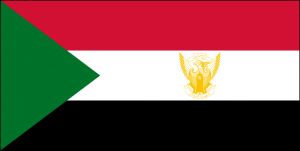Language/Sudanese-arabic/Grammar/Negation
Hi Sudanese Arabic learners! 😊
In this lesson, we will delve deeper into the concept of negation in Sudanese Arabic grammar. We will discuss how to express negation, how to form negative sentences, and how to use negation words in context. We will also look at some interesting facts about the language and Sudanese culture. To improve your Sudanese Arabic Grammar, you can use the Polyglot Club website. Find native speakers and ask them any questions!
Expressing negation[edit | edit source]
In Sudanese Arabic, negation is expressed by using negative particles or negation words. Some common negative particles are "ما" (ma), "ليس" (lays), "لا" (la), and "مو" (mu). These particles negate the verb that follows them. For example:
| Sudanese Arabic | Pronunciation | English |
|---|---|---|
| ما بعرف | ma baʕref | I don't know |
| ليس سهل | lays sahl | It's not easy |
| لا بدي اروح | la biddi arūḥ | I don't want to go |
| ما كنت بكتب | ma kunt biktib | I wasn't writing |
| مو مجرد كذب | mu majradd kuzb | It's not just a lie |
Negation words are also used to negate nouns, adjectives or adverbs in a sentence. Some common negation words are "ما" (ma), "مش" (mesh), and "ماشي" (mashi). For example:
| Sudanese Arabic | Pronunciation | English |
|---|---|---|
| ما برد | ma bard | It's not cold |
| مش كتير | mesh kteer | Not much |
| ماشي بخير | mashi bikhayr | Not fine |
Forming negative sentences[edit | edit source]
In Sudanese Arabic, negative sentences are formed using negative particles or negation words. The word order is usually subject + negative particle/word + verb + object. For example:
| Sudanese Arabic | Pronunciation | English |
|---|---|---|
| انا ما بعرف | ana ma ba'raf | I don't know |
| هي مش عاجباها | hiyya mesh ʕājbahā | She doesn't like it |
| ما بدي اشرب | ma biddi ashrab | I don't want to drink |
Note that in the present tense, the negative particle "ما" (ma) is used with present tense verb forms, while for the past and future tenses, the negative particles "ليس" (lays) and "لا" (la) are used respectively. For example:
| Sudanese Arabic | Pronunciation | English |
|---|---|---|
| ليس هو هنا | lays huwwe huna | He is not here |
| لا بدي اروح | la biddi arūḥ | I don't want to go |
| ما بعرف شو بدي اعمل | ma baʿarif shu biddi aʿmel | I don't know what to do |
Negation words can also be used to form negative sentences. For example:
| Sudanese Arabic | Pronunciation | English |
|---|---|---|
| مش قادر افهم | mush ādar afham | I can't understand |
| ماشي مستحيل | mashi mustaħil | It's not possible |
| مش عاجبهم | mesh ʕājebhum | They don't like it |
Using negation words in context[edit | edit source]
Negation words in Sudanese Arabic can also be used to express agreement or understanding in certain contexts. For example, if someone asks if you are hungry and you are not, you can say "ماشي" (mashi) to indicate that you are not hungry. This usage is similar to saying "No, I'm not" in English. Similarly, if someone tells you something and you agree, you can say "مش" (mesh) to indicate your agreement. This is similar to saying "Exactly" or "That's right" in English. For example:
- Person 1: حطلي سكرة (ħutli skrah) (Give me a cigarette)
- Person 2: ماشي ، انا ما ادخن (mashi, ana ma adkhun) (No, I don't smoke)
- Person 1: الجو حلو النهاردة (elgaw helu alnahārda) (The weather is nice today)
- Person 2: مش جو بارد (mesh gw bārd) (It's not cold weather)
Note that in both cases, the negation word is being used to express agreement or understanding, rather than negation.
Interesting facts[edit | edit source]
- Sudanese Arabic is one of the most widely spoken Arabic dialects in the world, with about 30 million speakers in Sudan and neighboring countries. - Sudanese Arabic has been heavily influenced by other languages such as Nubian, Beja, and even English. - Sudanese culture is known for its hospitality and strong sense of community, and this is reflected in the language. Sudanese Arabic has many words and expressions that are used to show respect and politeness towards others. - Sudanese Arabic also has a rich tradition of poetry and storytelling, and many Sudanese people are known for their creative use of language.

